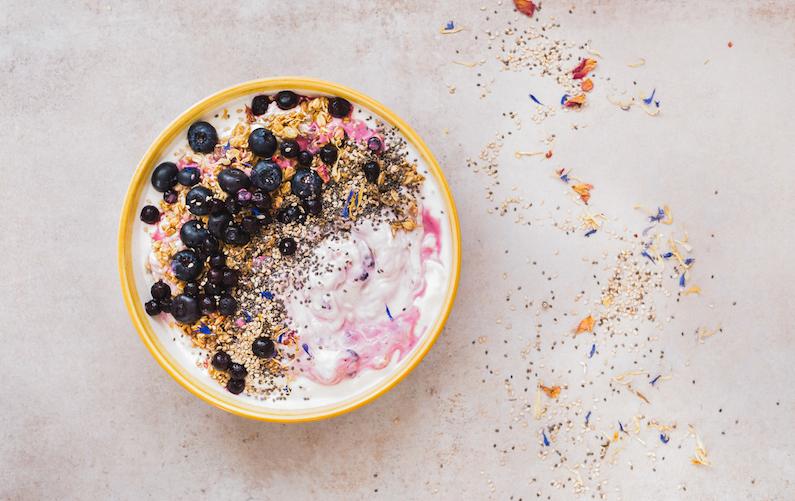
When a new food shows up on the market and it becomes popularized and mainstream, it’s easy to assume that it must be healthy.
After all, if so many people are consuming it and talking about how great it is, it must have heaps of nutritional benefits, right?
Not necessarily!
As a nutritionist, I see a lot of people jumping on board with foods they assume must be really good for them, only to be pretty surprised at the truth.
Here are a few to watch out for:
Acai Bowls
The acai fruit gets a lot of attention because of its high content of antioxidants. This is true, and these antioxidants can indeed play an important part in reducing oxidative stress within the body. Unfortunately, however, acai on its own doesn’t taste very good! This means, that in most cases, when you purchase an acai bowl, there is only a small amount of acai fruit in it. The rest of it is all about making it palatable and masking the bitter taste acai lends. It may be sweetened by adding a couple of bananas, sweetened frozen yogurt or sugar alternatives such as stevia, dates or maple syrup. At the end of the day, if you’re not careful, you’re consuming a bowl of sugar!
Store-Bought Kombucha
Similar to acai bowls, kombucha can be high in sugar. The process of making kombucha uses sugar, which is fermented and mostly eliminated. However, depending on the degree of fermentation, there may still be a lot of sugar that remains. Making your own kombucha is a great alternative to be able to monitor the sugar content more adequately.
Store-Bought Granola
You may be surprised when you go to the grocery store and look at the ingredients of granola: many of them have sugar and/or oil within the first five ingredients. Most of us buy granola and want it to have thick clusters and lots of crunchy bits in the box – otherwise we would just buy cereal. Achieving this however requires a combination of sugar and oil, and sometimes that occurs in large quantities.
Pre-Made Smoothie
Building a smoothie at home entails taking a selection of fresh ingredients, pureeing them until smooth and then consuming soon after, offering a boost of nutrients. As a general rule, you should make our smoothies from mostly vegetables and refrain from adding lots of fruit, as this simply increases the sugar content of the meal. In the case of store-bought smoothies however, the other issue is that many of them are pasteurized. This process ends up greatly decreasing the nutrient value of the product. If it was a largely fruit based smoothie to start with, now you are consuming a sugary beverage that has had a lot of the other nutrients zapped out due to pasteurization. Look for smoothies that are vegetable based and unpasteurized.
These foods do not have to become restricted foods that you suddenly don’t eat any more. Instead, they just have to be ones that you purchase more mindfully. Read the ingredients, check the sugar content, make sure they are natural, and as always, practice moderation.
By: Laura Peill, RHN, BScH

Leave a comment